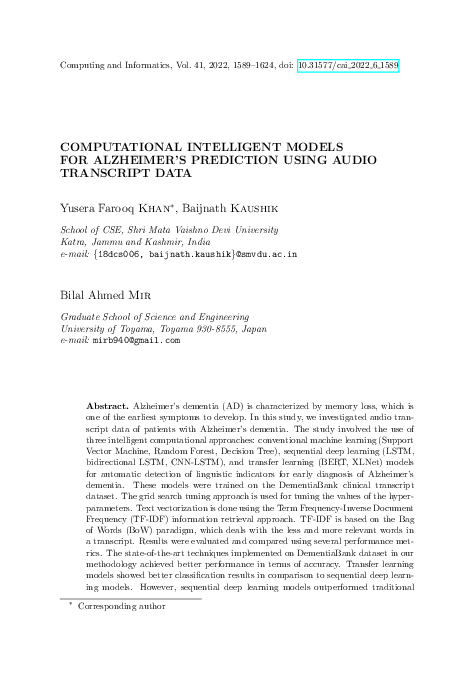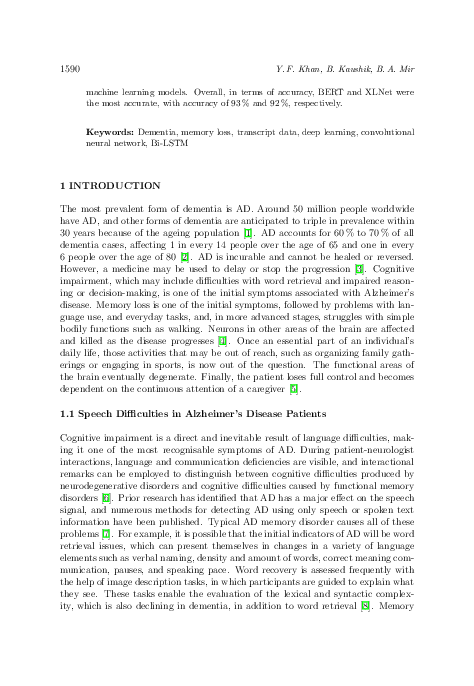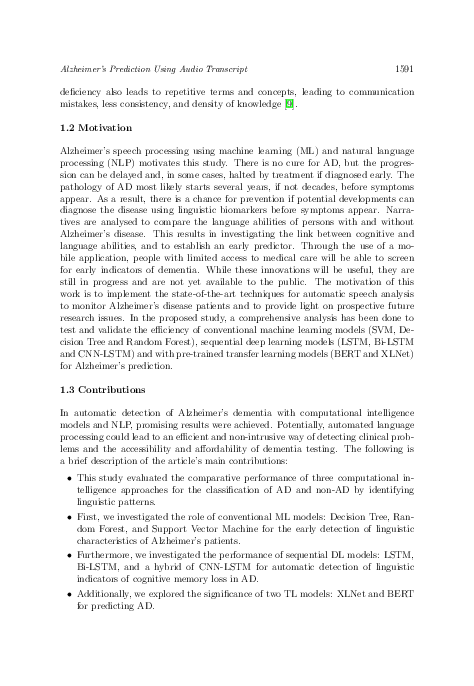Computational Intelligent Models for Alzheimer's Prediction Using Audio Transcript Data
keywords: Dementia, memory loss, transcript data, deep learning, convolutional neural network, Bi-LSTM
Alzheimer's dementia (AD) is characterized by memory loss, which is one of the earliest symptoms to develop. In this study, we investigated audio transcript data of patients with Alzheimer's dementia. The study involved the use of three intelligent computational approaches: conventional machine learning (Support Vector Machine, Random Forest, Decision Tree), sequential deep learning (LSTM, bidirectional LSTM, CNN-LSTM), and transfer learning (BERT, XLNet) models for automatic detection of linguistic indicators for early diagnosis of Alzheimer's dementia. These models were trained on the DementiaBank clinical transcript dataset. The grid search tuning approach is used for tuning the values of the hyperparameters. Text vectorization is done using the Term Frequency-Inverse Document Frequency (TF-IDF) information retrieval approach. TF-IDF is based on the Bag of Words (BoW) paradigm, which deals with the less and more relevant words in a transcript. Results were evaluated and compared using several performance metrics. The state-of-the-art techniques implemented on DementiaBank dataset in our methodology achieved better performance in terms of accuracy. Transfer learning models showed better classification results in comparison to sequential deep learning models. However, sequential deep learning models outperformed traditional machine learning models. Overall, in terms of accuracy, BERT and XLNet were the most accurate, with accuracy of 93 % and 92 %, respectively.
reference: Vol. 41, 2022, No. 6, pp. 1589–1624


